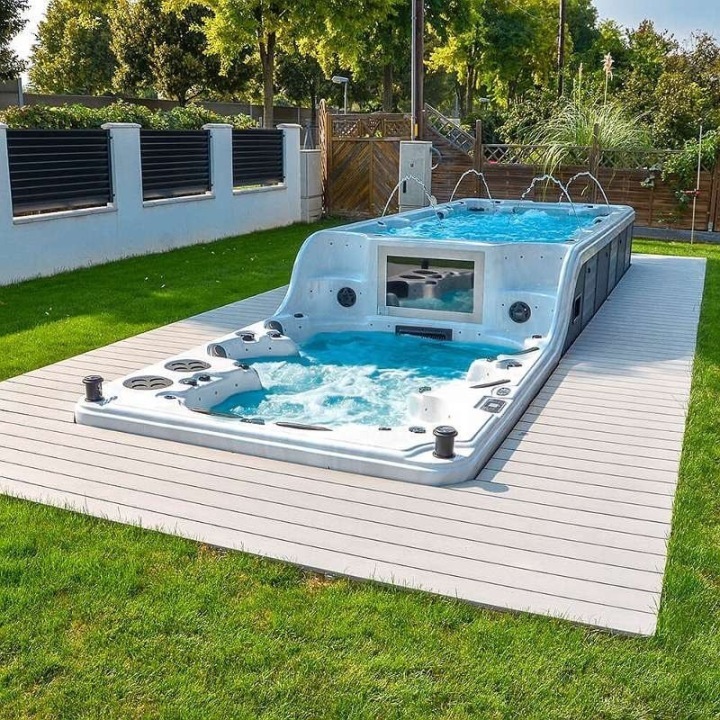A private pool in the garden is a dream for many homeowners. However, choosing the best pool depends on various factors, including budget, available space, usage habits, and maintenance effort. Here is an overview of the most common types of pools and their pros and cons:
Above-ground pools
Above-ground pools are the most cost-effective and simplest option. They are usually made of durable materials like PVC or metal and can be installed without major construction work. These pools are ideal for families with children and are particularly suitable for renters since they can be easily dismantled.
Above-ground pools are inexpensive to purchase and can be quickly and easily installed. Additionally, they are mobile and flexible, which is particularly practical for renters. However, they are less durable than other types of pools, have a limited size and depth, and are less visually appealing.
In-ground pools
In-ground pools are pools embedded in the ground, offering a high level of aesthetics and durability. They can be made from various materials such as concrete, plastic, or stainless steel and can be customized.
In-ground pools are durable and stable, visually appealing, and can increase the property's value. They offer a wide variety of sizes and shapes. However, they come with high acquisition costs, require extensive construction work, and have a higher maintenance effort.
Natural pools
Natural pools, also known as swimming ponds, are an eco-friendly alternative to conventional pools. They do not use chemical additives and clean themselves through natural filter zones.
Natural pools are environmentally friendly and do not use chemicals. They offer a natural appearance and a pleasant swimming experience, and the operating costs are lower. However, the acquisition costs are higher, they require more space, and their use is limited in winter.
Conclusion
The best pool for the garden strongly depends on individual needs and circumstances.
